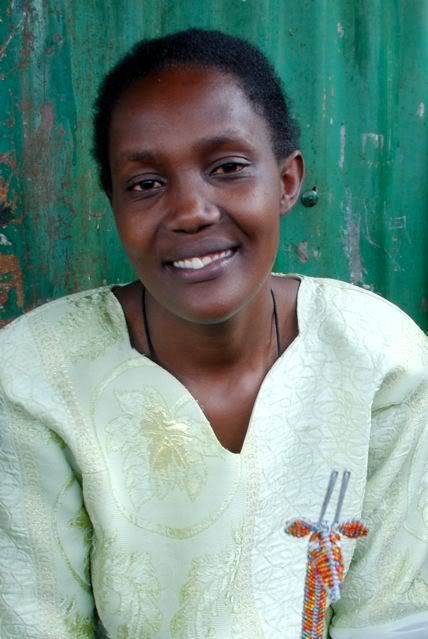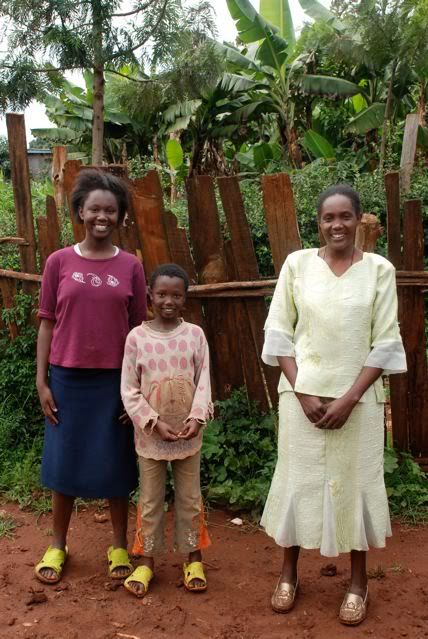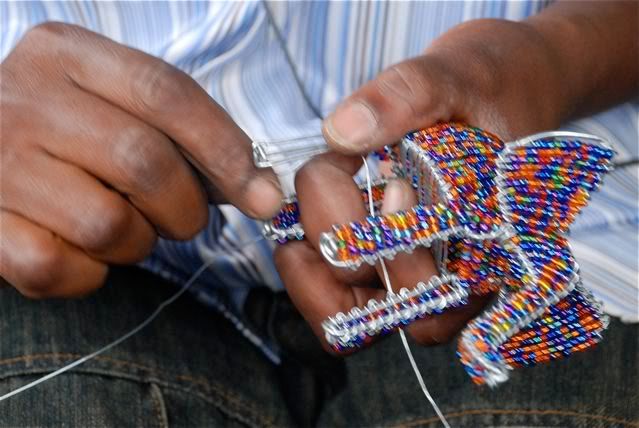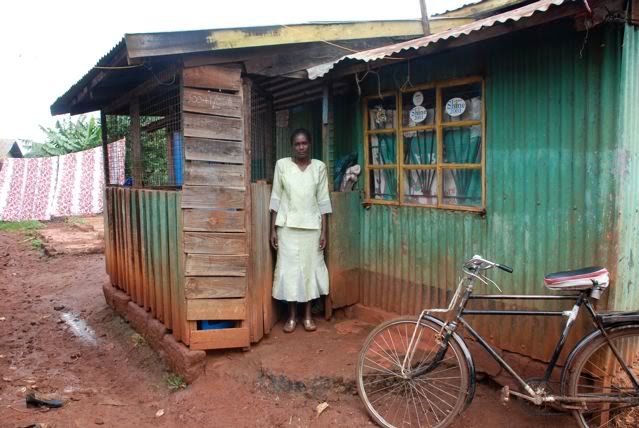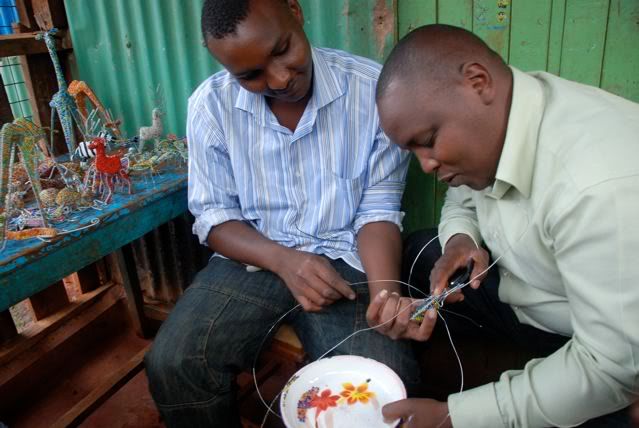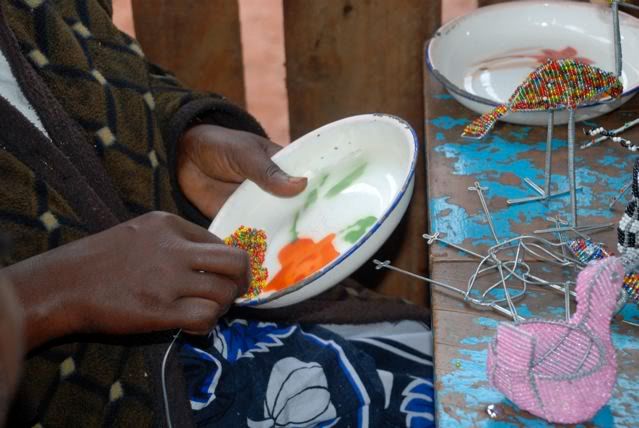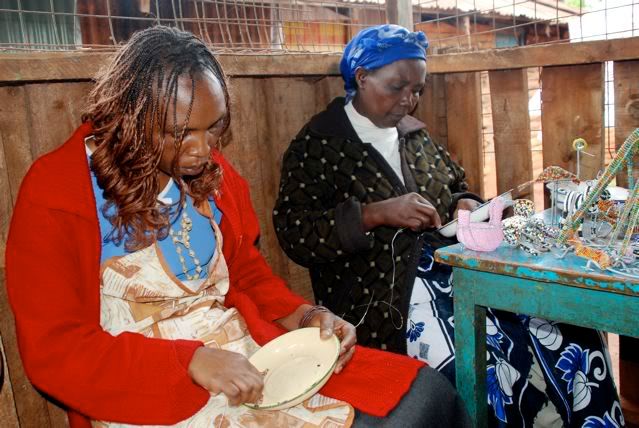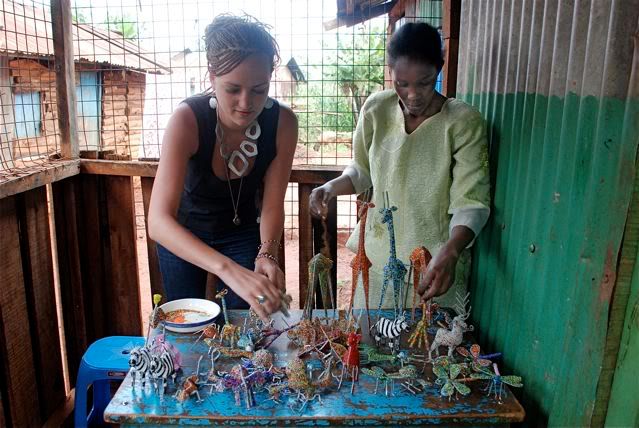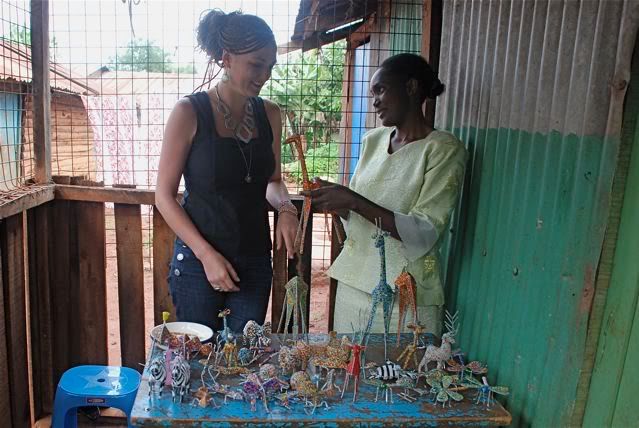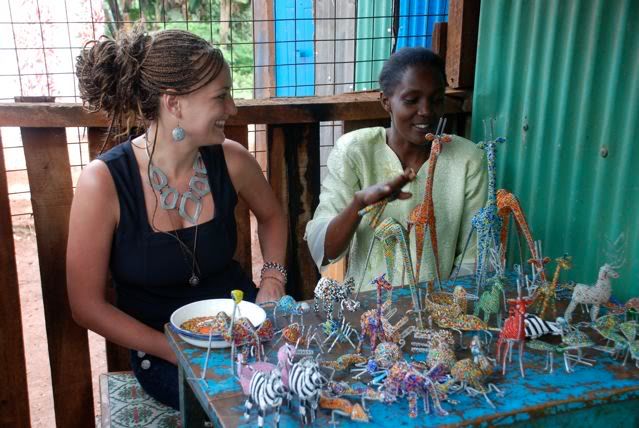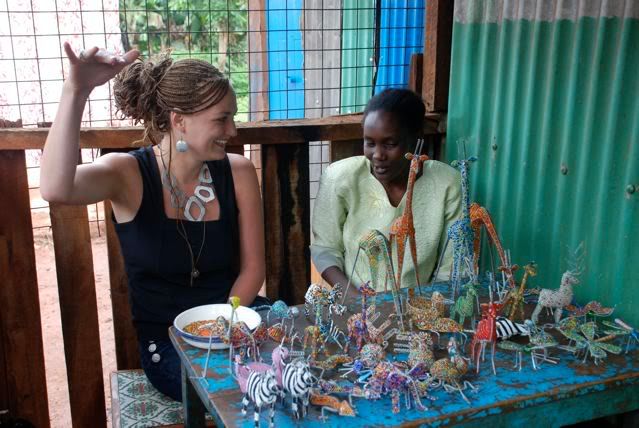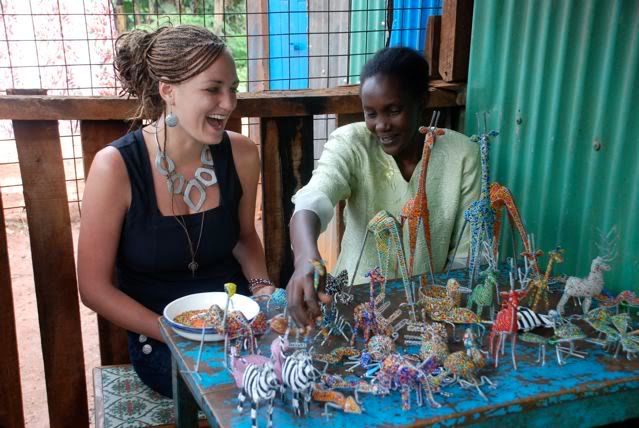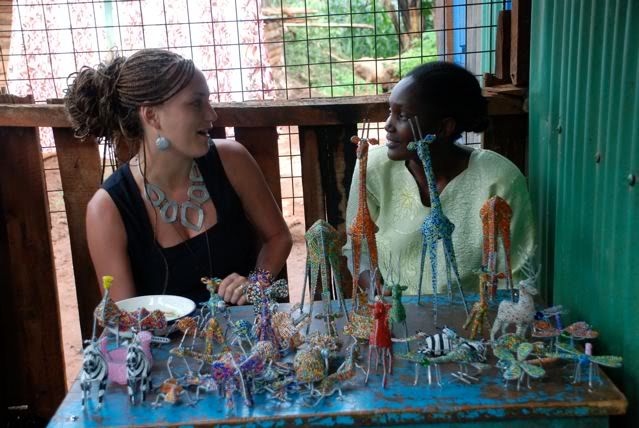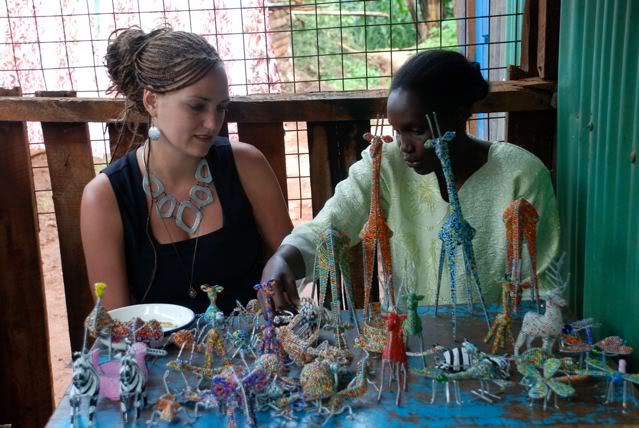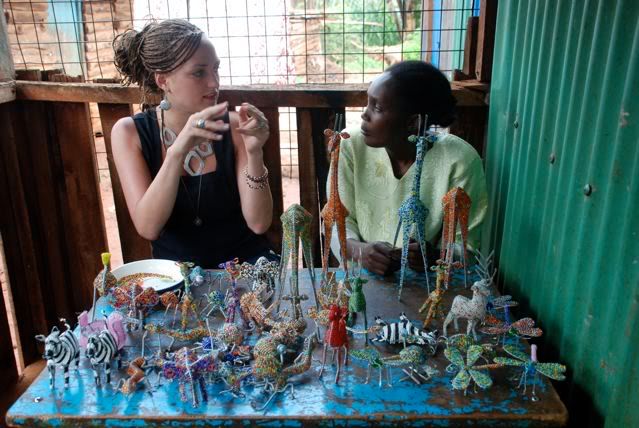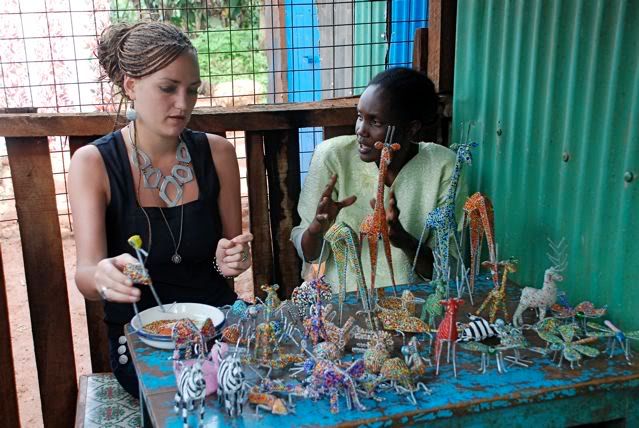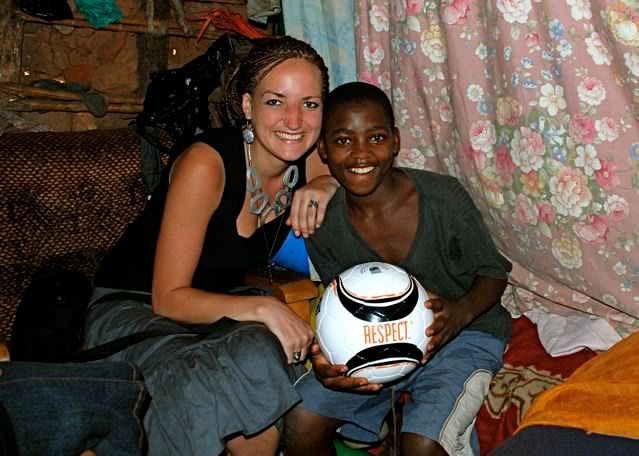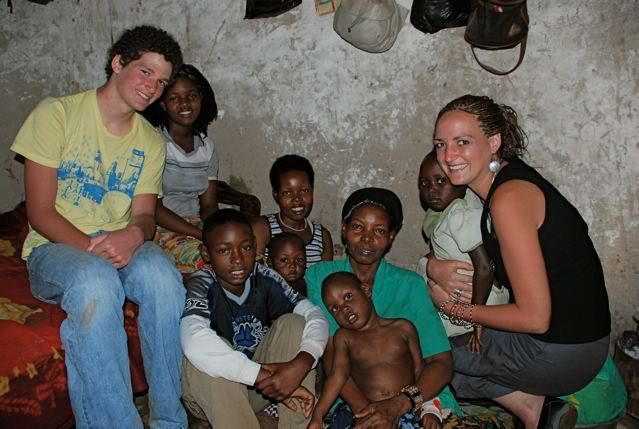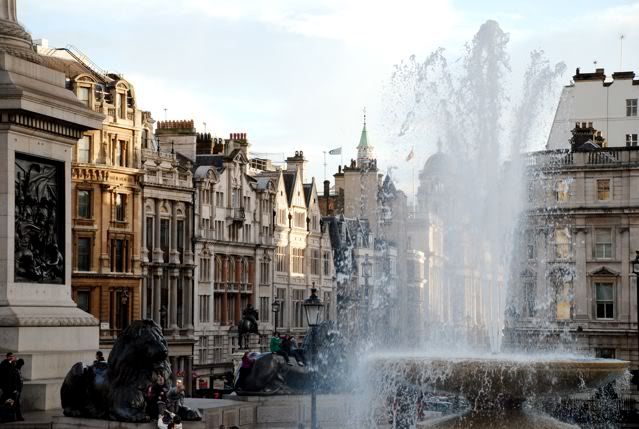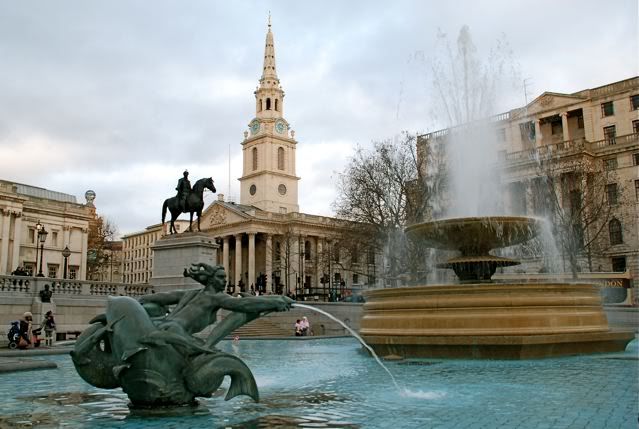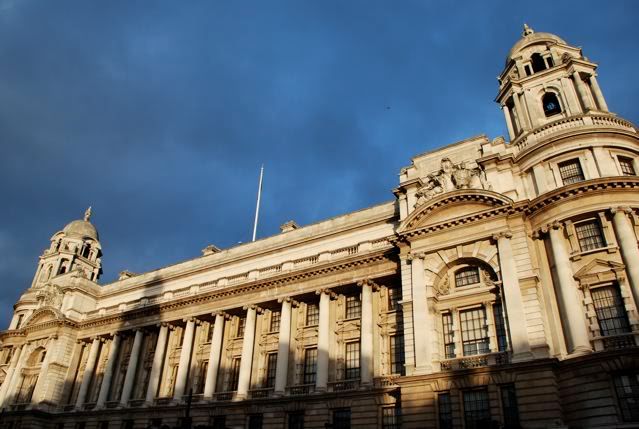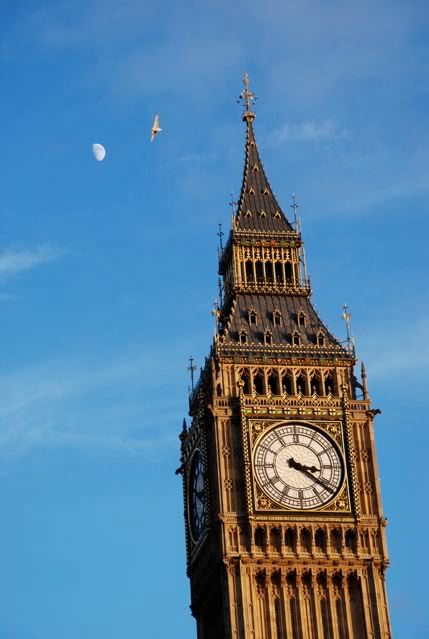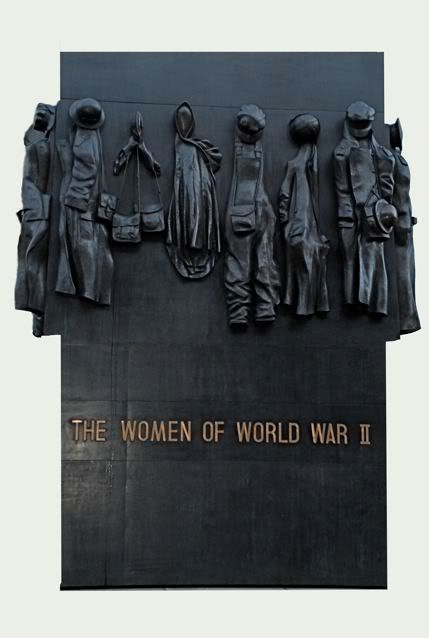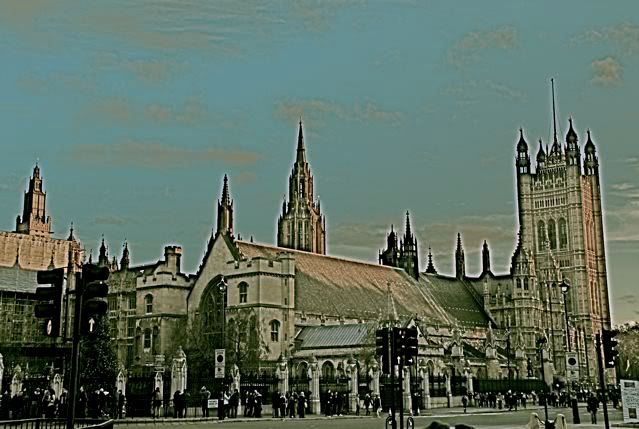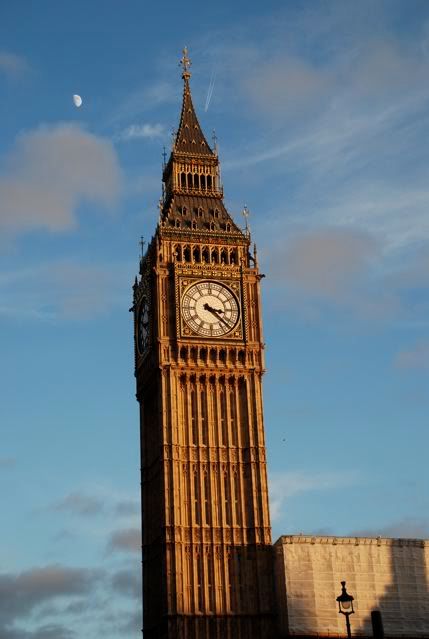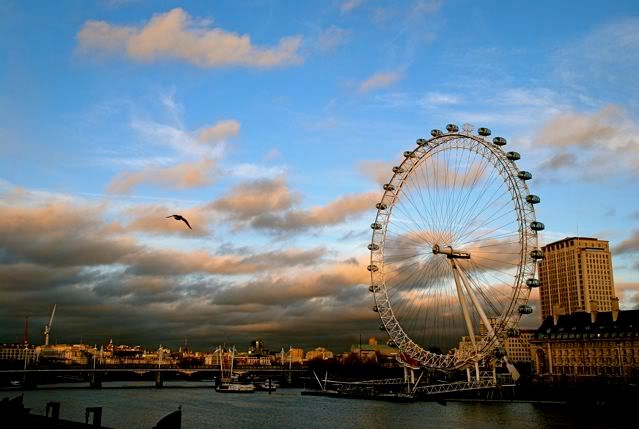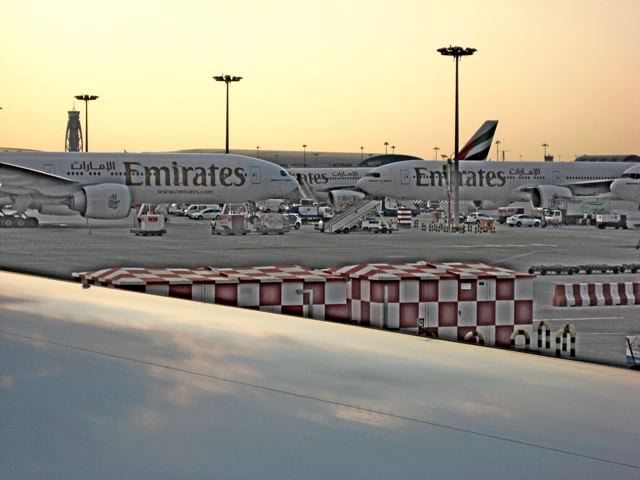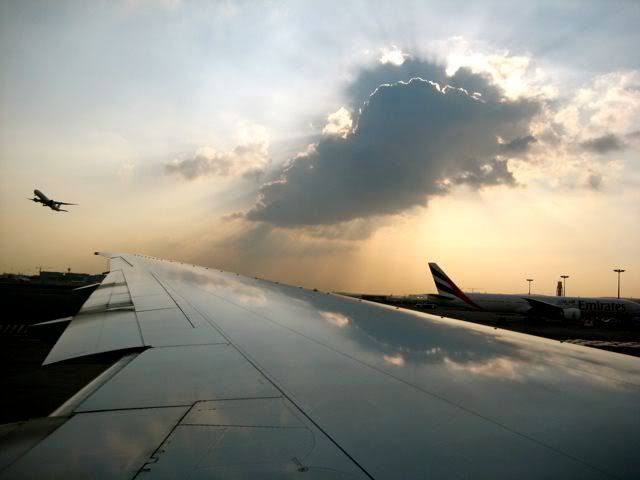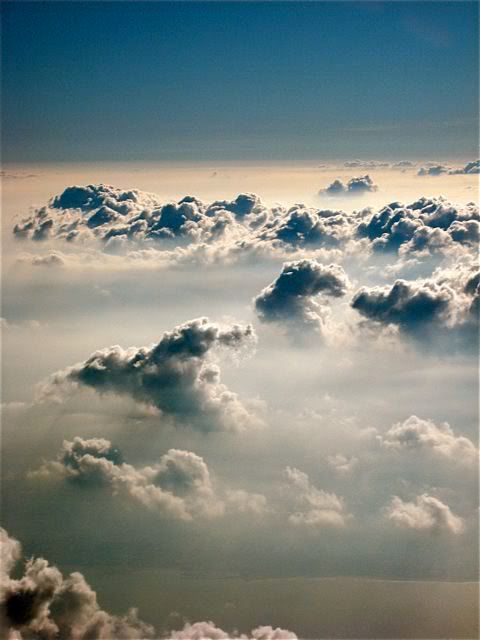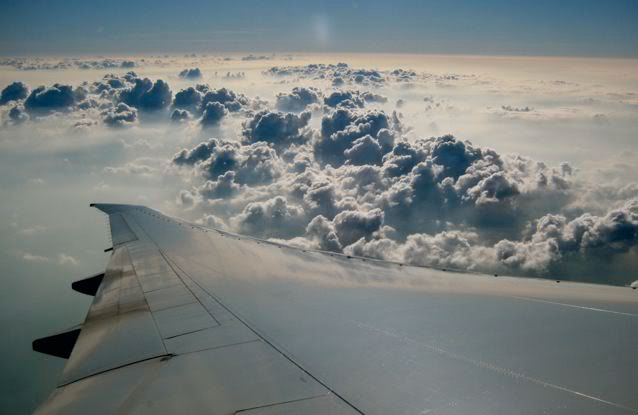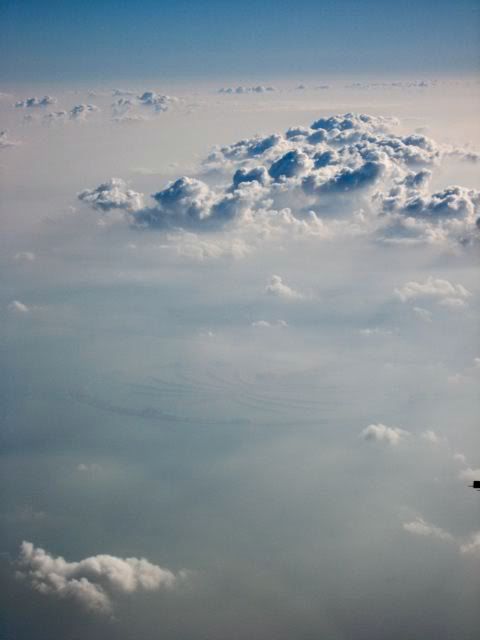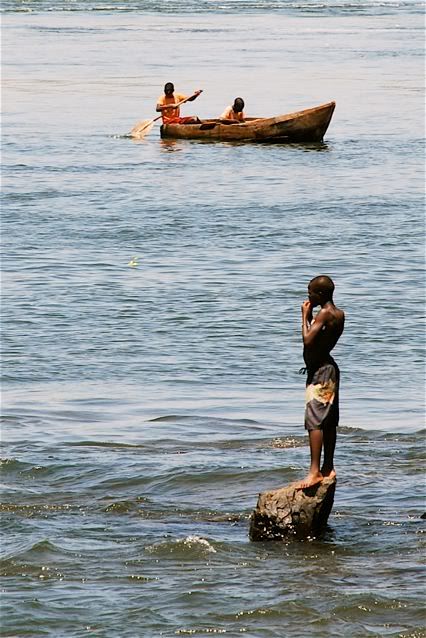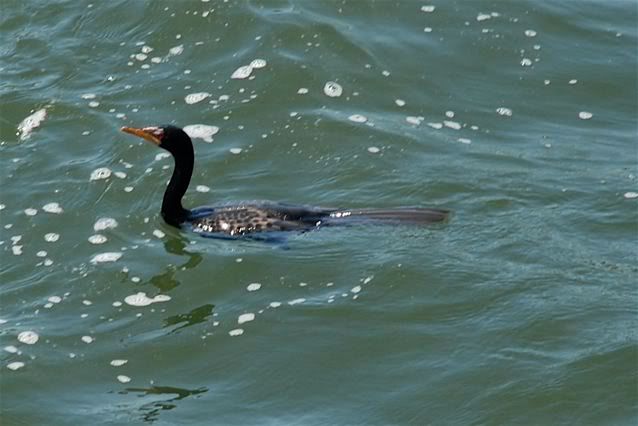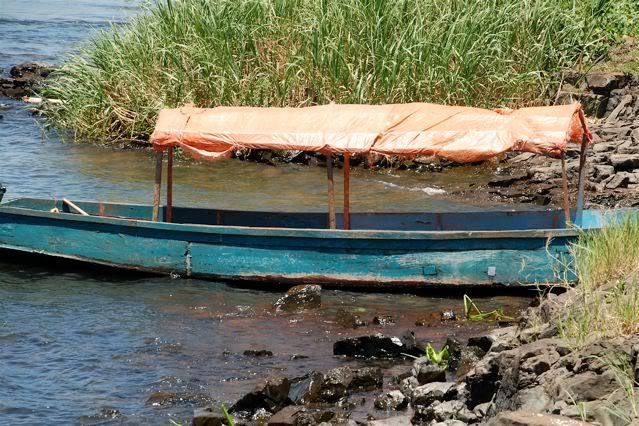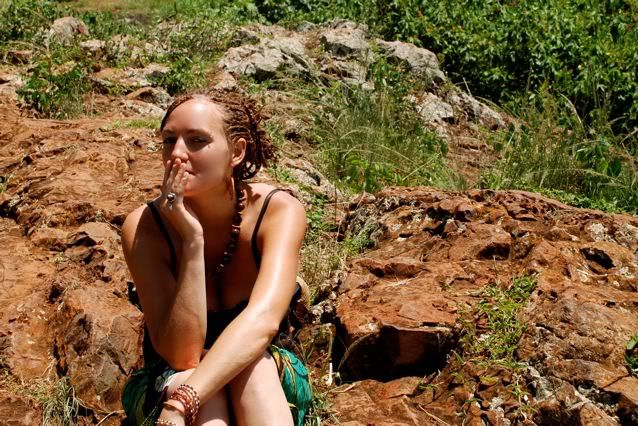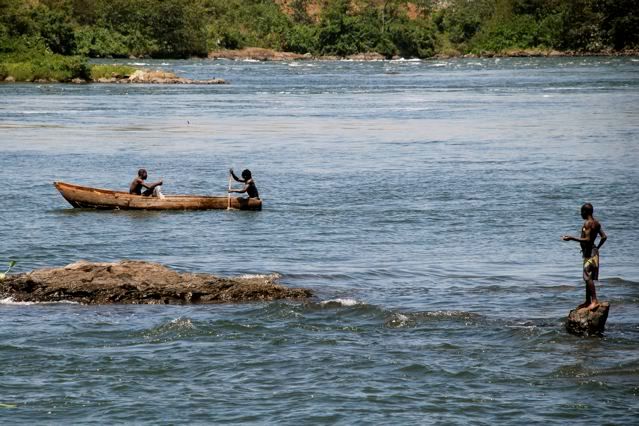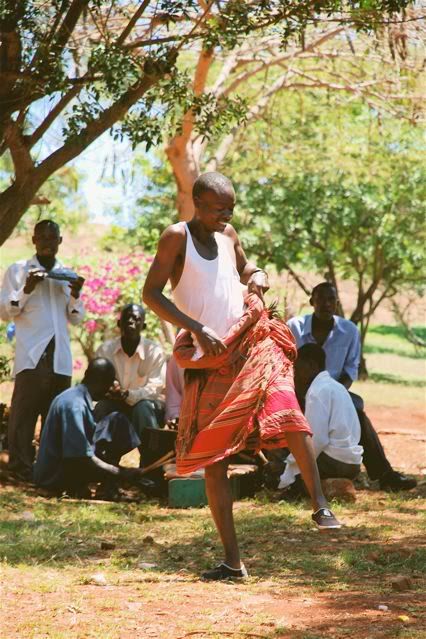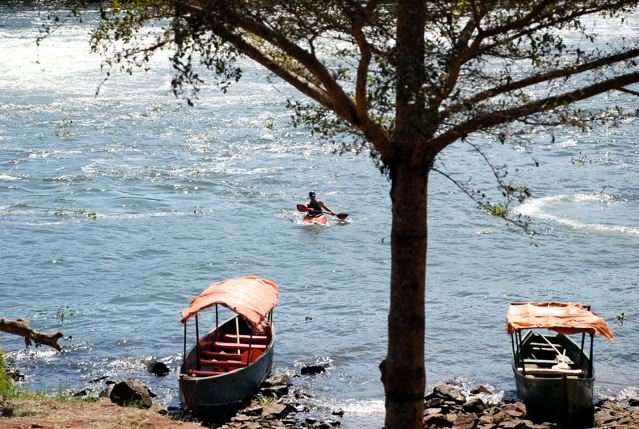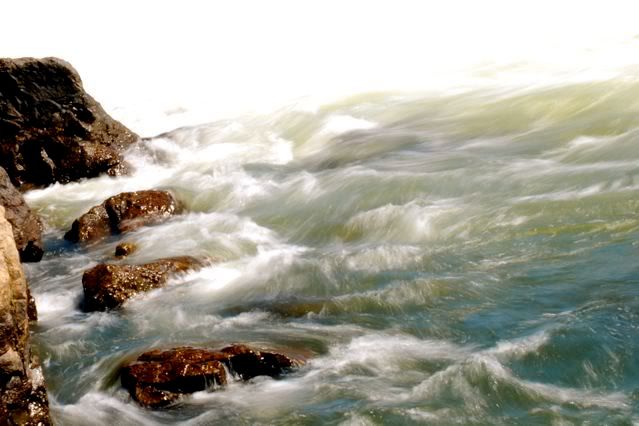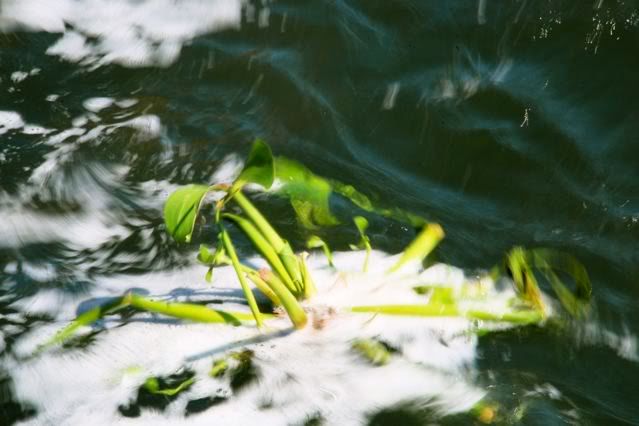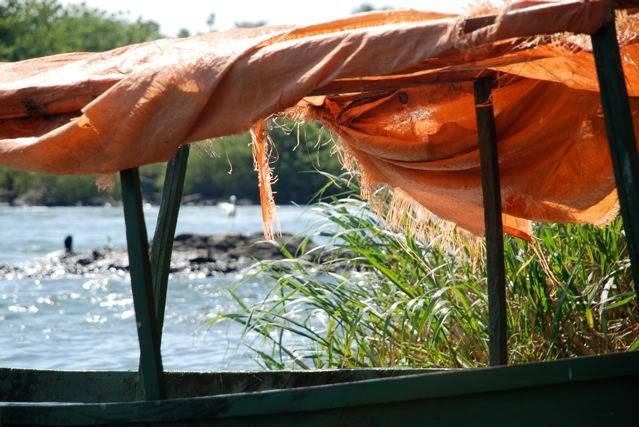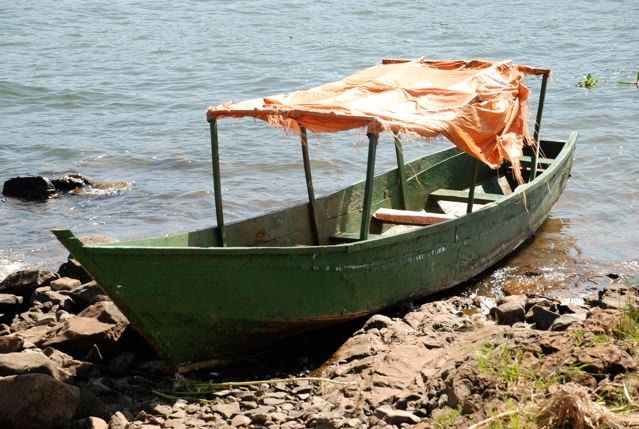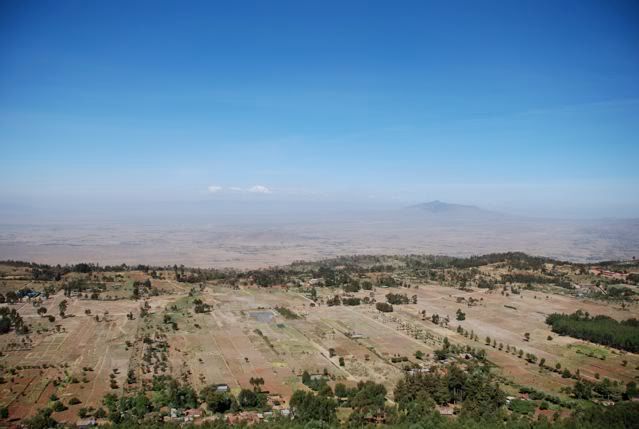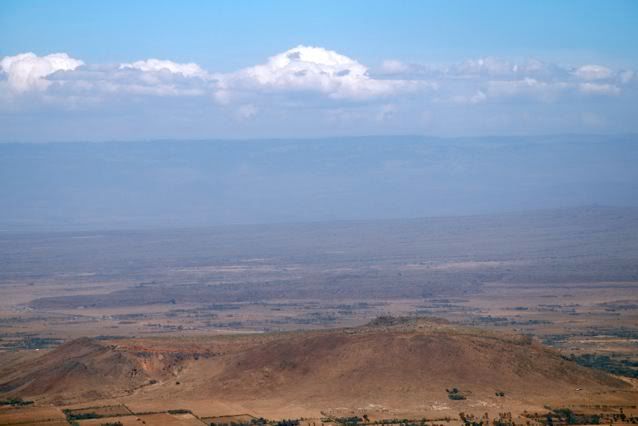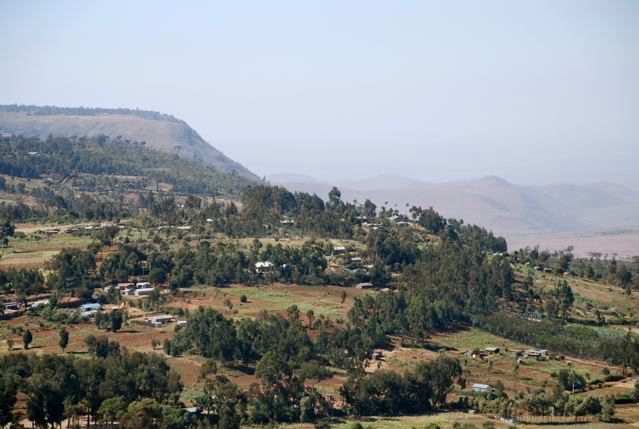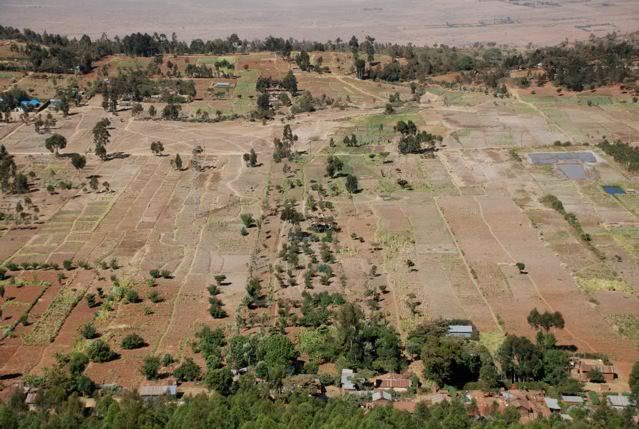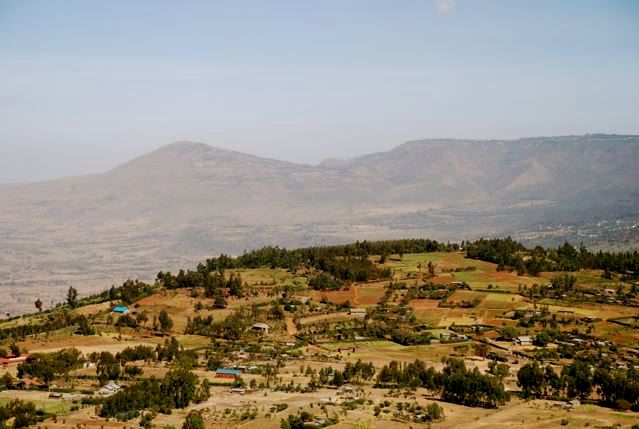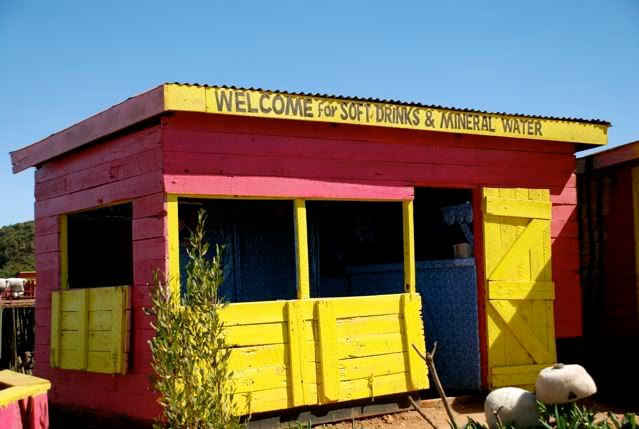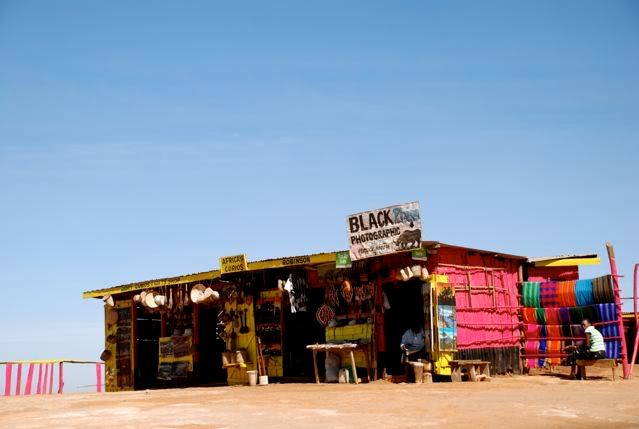February 7, 2009
Everyday to go home I board a matatu from town to Bugolobi Luzira. On good days, I catch the taxi when it is almost full, get a seat somewhere near the front, and manage to avoid the jam. On other days, I’m one of the first people to board and I shimmy my way into the back seat. We lurch around looking for 11+ other people traveling in the same direction, only to be stuck for what may be hours in the traffic jam in Kampala.
Thankfully today was a good day.
So … Everyday I take this matatu past Bugolobi and Kittintale until I reach the SP gas station on the left. I say “maso awo” to the conductor, meaning “stop just a bit ahead,” and I give him 1000 shillings (about sixty American cents). Then I walk a mile or so up Luzira hill, past Radio Maria, past the summit where you can see the great waters of Lake Victoria, until I reach the junction before Biina. There I turn left down the muddy dirt road, greet the children and Sarah, and continue until I reach the house with a black-gated fence. At that point I turn left again and walk up the steep hill past three gates until I reach my home.
So now I’ve just told all of you how exactly to find me in Uganda.
(just in case you’d like to visit).
Today, walking up Luzira hill, I was particularly tired. I’d been walking since about 8:00 in the morning, weaving my way in and out of traffic and bodies and shielding my eyes from the scorching sun.
I had first gone to visit TASO Uganda and the Mulago Positive Woman’s Network (MPWN), two amazing organizations working with HIV+ men, women, and children in Uganda. The MPWN is an income-generating empowerment program for HIV+ women, and Fair Earth is in the process of developing a relationship with them so we can bring you their products.
After visiting with them, I went to FOCUS (the organization I worked at in 2004) to discuss some new jewelry designs and networking opportunities. I was then on a mission to find a man called “Silver,” who I was told made leather sandals. I was given general directions, and after asking several people and walking for what felt like miles, I found Silver in the outskirts of town. His small but productive workshop was surrounded by the swarming busyness of the veteran’s market. He introduced me to his work and we discussed new design possibilities and business development, including a future partnership with Fair Earth.
The afternoon stretched into long hours so that at the beginning of my mile-long hike up Luzira hill, I was already feeling tired. When I reached the summit where the expanses of lake Victoria are visible, I paused for a moment to take in the scenery. Dusk was falling, and in the hills surrounding the lake, whips of smoke rose into the air as families prepared their dinner. Thinking about food cooking, my stomach began to growl; I turned my gaze and quickened my pace towards home.
My cell phone rang. “Hello?”
“Yes Holly, this is Janet.”
Janet is my Ugandan mom.
“Janet! I’m about to reach home… I’m walking up the hill.”
“Ok… its getting late, and we’re wondering why there’s no sign of dinner. We’re getting hungry.”
My stomach was also growling. We realized, to everyone’s dismay, that we had mis-communicated the days I was scheduled to cook an “American” dinner, meaning it will take at least three hours from now to prepare food. Our stomachs will have to wait.
My gait relaxes and I take in the scenery. A boy carrying firewood. Women organizing their kiosks. Matoke cooking. Children playing football, or helping their moms cook, or cleaning the compound. It is very difficult not to notice the children. Everyday, without fail, they run after me as I walk home calling the same greeting:
“Bye Mzungu! Bye – yeeee! MZUNGU! BYE-YEEEEE!!!”
They scream louder and run closer until I stop and purposefully say goodbye to each of them. Sometimes I find this daily ritual to be quite humorous.
There was one day in particular when I literally went weak in the knees from laughter while walking from home into Luzira town to find a pharmacy. Some men were sitting around on their porch drinking marula, a local brew made from millet flour. One of them pointed at me and shouted, “Mzungu!” Suddenly I became the center of attention for everyone around. The man that caused me to completely loose my composure and break down into laughter was an older gentleman, or mzee, of at least 75 years. I imagine there are many times when his eyes are filled with wisdom and insight, but at this particular moment they were glazed over with merriment. He stood up, leaning on his bamboo straw which dipped into the marula gourd, and yelled in a bellowing voice, “MZUNGU! HOW ARE YOU! MZUNGU! HOW ARE YOU! MZUNGU! HOW ARE YOU! HOW ARE YOU!”
At first I responded, saying “I’m fine, thank-you, how are you?” But I was quick to realize that he was not asking me to find a response. He was merely thoroughly enjoying the rarely-seen spectacle of a white woman trying to make her way through the market to town.
As I continued walking and his bellowing greetings faded into the distance, I felt like one of those circus clowns with a painted-on grin and battery-powered hand that waves at people. Push me here and I’ll smile. Pull this string and I’ll wave. Press this button and I’ll jump.
Let me tell you, being a part of a human circus is never a good feeling, no matter what side of the fence you are on.
I should mention, however, that I am highlighting this situation because it is very rare. For the most part, encountering disconnect and spectacle from the people here is almost unheard of for me. Any of you who’ve listened to me speak of Uganda know that this place is my second home, and the connection I experience with this land and the people here goes far deeper than I can understand.
Even the “circus” feeling I get sometimes while walking home can be overcome very simply when I shake a child’s hand a say in Luganda, “My name is not Mzungu; my name is Holly.” This without fail makes them giggle and respond to me incredulously in Luganda, amazed that I know their language. In those few words a HUGE barrier comes crashing down, and we make a human connection.
In fact, it is this connection that has time and again filled me with awe, and has been a driving force behind the establishment of Fair Earth. I have been welcomed with open arms as a foreigner into a community that is not my own; I have been adopted into a family here; and I have built a trusting business partnership with numerous artisans. Working together, we have developed a social enterprise that is self-sustaining for all of us, relying on mutual trust and comradery as our deposits and safe-holds.
Our experiences connect and unify us. We find joy in our points of commonality and inspiration in our uniqueness.
There is much more I could write about this, but my stomach is growling and before dinner Joshua wants me to help him make a poster about “Communication in Business” for a presentation he has at school tomorrow. So I’m off to do homework!
Hope you all are well,
Sincerely,
Holly Elzinga
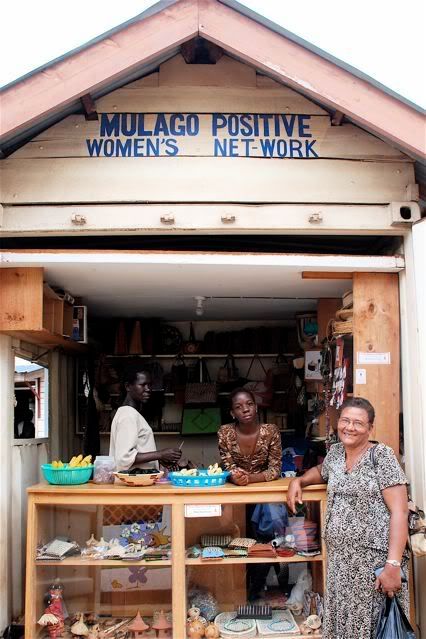
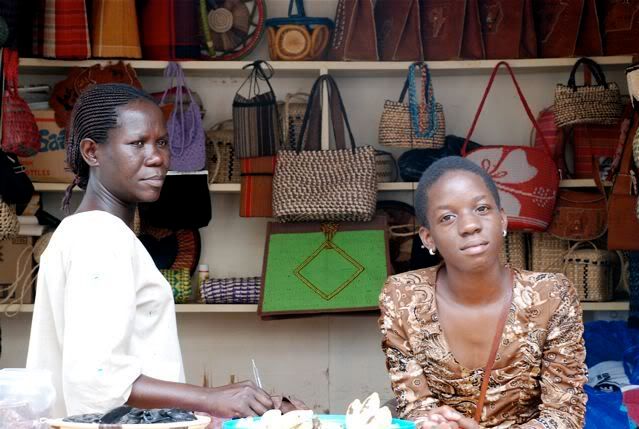
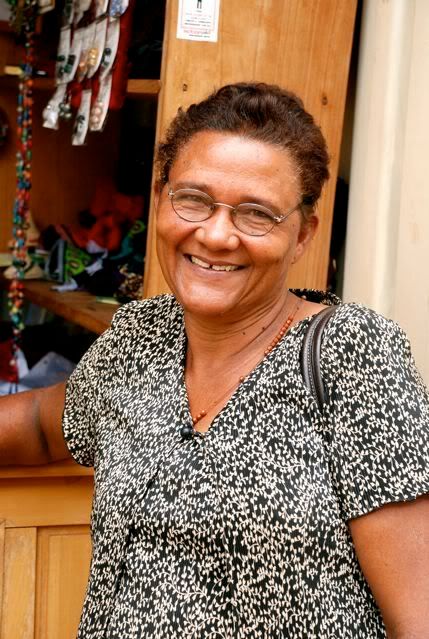
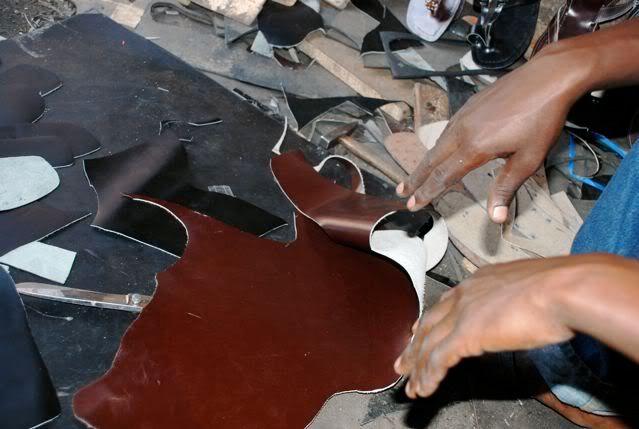
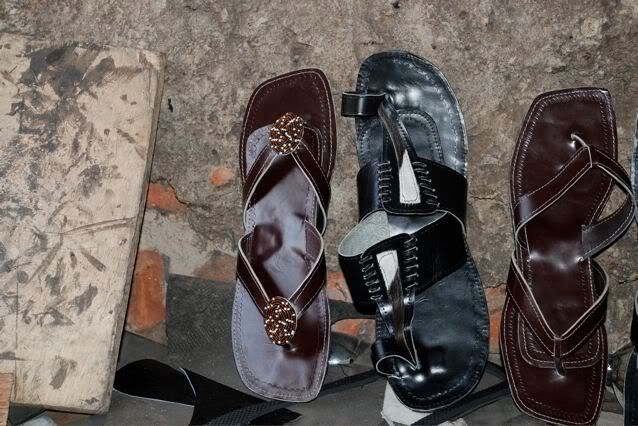
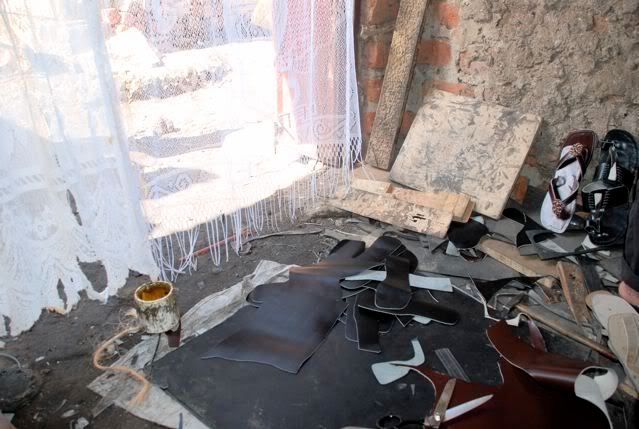
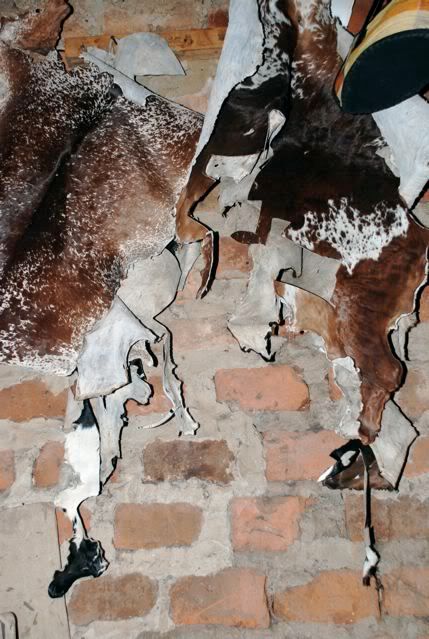
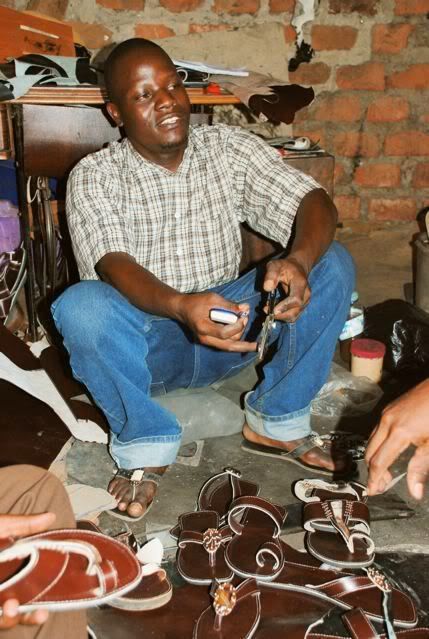
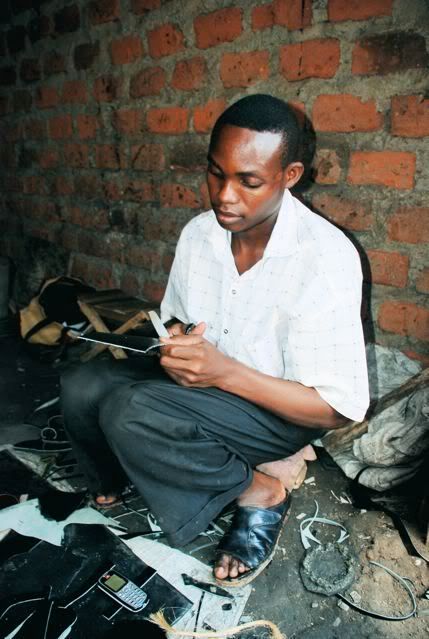
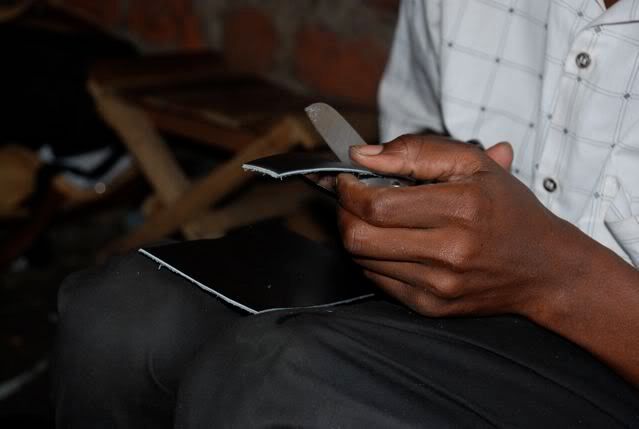
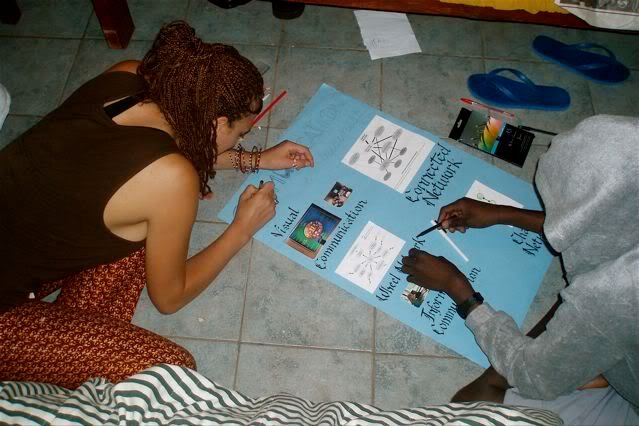
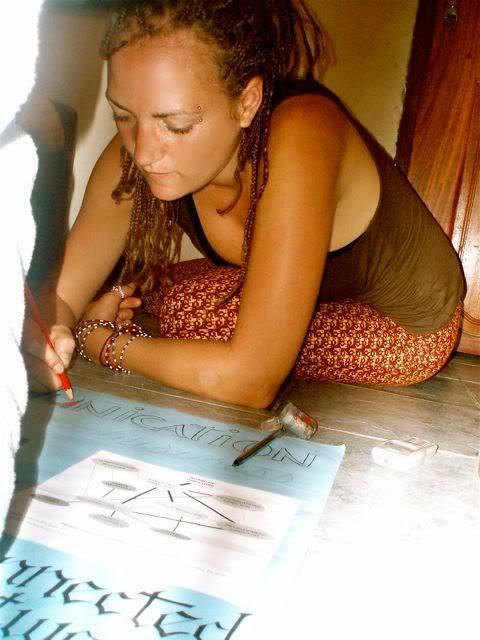
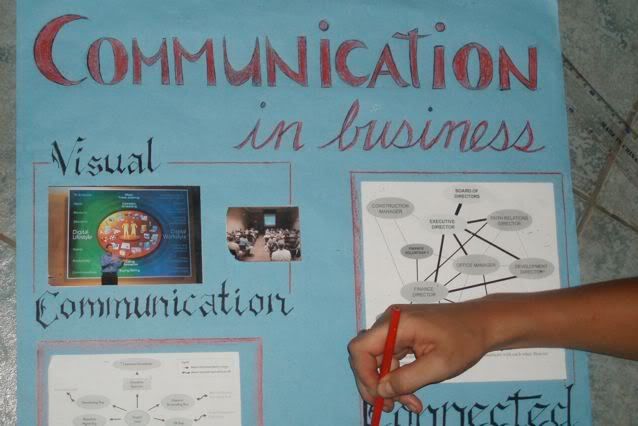
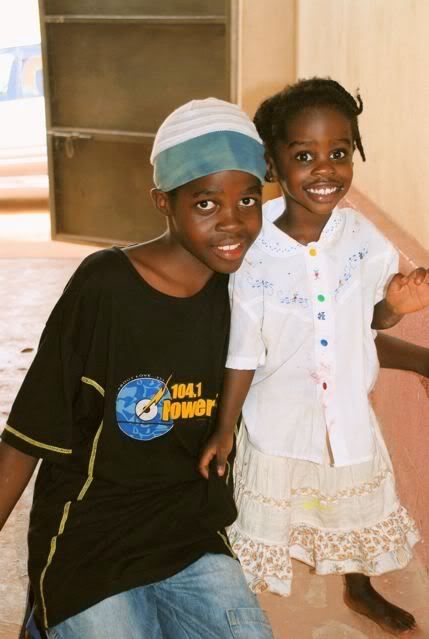























 Water Buffalo, Sacred Ibis, and Hippos on the shores of the Nile
Water Buffalo, Sacred Ibis, and Hippos on the shores of the Nile

 View of Murchison Falls from above
View of Murchison Falls from above Nick, Kiran, and our guide at the top of the Falls
Nick, Kiran, and our guide at the top of the Falls Holly at the top of the falls
Holly at the top of the falls Robinah with grandchildren Michael, and Millie
Robinah with grandchildren Michael, and Millie
 Holly and Millie
Holly and Millie
 Hand-rolled paper beads
Hand-rolled paper beads Paper beads, newly varnished, hanging to dry
Paper beads, newly varnished, hanging to dry Robinah’s sister helps with beadwork
Robinah’s sister helps with beadwork Robinah’s daughter Joyce, with children Millie and Michael
Robinah’s daughter Joyce, with children Millie and Michael
 Walking back to town from Robinah’s home
Walking back to town from Robinah’s home